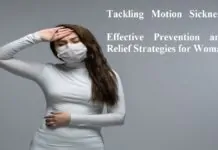Neutropenia is a condition in which there are low levels of neutrophils (white blood cells). Neutrophils protect the body from infections. Without enough neutrophils, you are at a higher risk of catching infections.
Therefore, it becomes extremely important for the neutropenic patient to adopt certain precautionary measures called neutropenic precautions to reduce the risk of catching infections.
If you’re neutropenic, you’ll have to follow a neutropenic precaution either you’re in the hospital or at home.
Table of Contents
Neutropenic Precautions in Hospital

Following are the guidelines for neutropenic patients
- The patient must be in a separate room
- For any reason, if neutropenic patients have to go outside of their private room, they must have to wear a mask.
- Everyone who needs to go to the patient’s room should follow certain precautions.
- Hospital staff should need to make sure that they are washing their hands before entering and leaving the room.
- Certain types of equipment like a thermometer and other reusable devices should be kept in the patient’s room. And he/she should be the only one who uses them.
- As the rectal area is very sensitive, therefore, those patients shouldn’t be given enemas or suppositories.
Top 7 Neutropenic Precautions at Home
Patients with mild neutropenia can stay at home. But it’s important to take certain precautionary measures to avoid the risk of infection. Only small changes to your daily lifestyle can largely reduce your risk of developing an infection.
Here is what you can do:
1. Hand Washing
It is the simplest and most important neutropenic precaution. There is a need to take extra care to ensure regular hand washing not only for the patient but also for the caregiver and visitors.
- Wash hand before preparing or eating food and after toileting
- Frequent hand washing is recommended for the patients and caregivers with soap, and water when hands are visibly soiled
- When not visibly soiled, then wash with soap and water or alcohol-based hand rubs.
- After washing, hands must need to be dry properly to avoid colonization of germs
- After washing hands, apply hand lotion or moisturizer
2. Oral Care
Gently brush teeth with a soft toothbrush twice per day.
3. Avoid Constipation
Make sure to have a regular bowel movement. Constipation needs to be avoided because there is a risk of rectal infection due to straining from constipation.
4. Avoid Tampons Use
Don’t use tampons, douches, or rectal suppositories and enemas as they could cause an infection.
5. Stay Away from Sick People
Avoid meeting with sick people, even if they have a mild fever or cold.
6. Avoid Pets
completely avoid touching pets or their waste.
7. Avoid Cuts
use gloves while cleaning and avoid using sharp objects.
Food Safety for Neutropenic Patients

Some foods are likely to cause foodborne illness and should need to be avoided. There is a need to be extra careful about what to eat and not to eat.
People with neutropenia are always advised to follow the FDA’s food safety guidelines.
| Foods to Avoid | Better Alternatives |
| Avoid raw foods like Raw and soft-cooked eggs, raw or slightly cooked shellfish, cold-smoked meat e.g. Parma ham, Sushi, and oyster | Properly cooked foods are suitable alternatives· Well-cooked eggs· Well-cooked shellfish· Well-cooked and vacuum-packed cooked cold meat e.g. beef, turkey, ham |
| Unpasteurized milk and its substitute | Pastured or UHT milk, almond milk, soya milk, etc. |
| Soft, mold-ripened cheesesCheese from unpasteurized milk | Processed cheeseCheese made from pasteurized milk |
| Yogurts with added bacteria’s | Yogurts without added bacteria’s(live bacteria aren’t harmful that are used to make yogurt) |
| Raw unwashed and unpeeled veggies and fruits | Properly washed veggies and fruits and peel them before consuming |
| Raw nuts and honey | Pasteurized and processed nuts and honey are a better substitute, like nut or seed butter |
| Avoid eating uncooked grains | Cooked grains |
Other Precautions Include
- Practice good kitchen hygiene by frequently washing hands before, during and after preparing and eating food.
- Use clean utensils and wash them properly after every single use.
- Avoid cross-contamination during food preparation
- Keep raw meat from cooked foods
- Keep fridge temperature between 0 to 5 °C and freezer below -18.
- Never refreeze thaw food
- Keep food covered
- Keep raw meat at the bottom of the fridge and cooked food at the top
- Leftover should only be eaten in case it was cooled within one hour of cooking and stored in the fridge with proper cover.
- Never reheat any food more than one time.
- Always follow cooking instruction that is mentioned on packaged food
How to Recognize Infection
Fever is a natural body’s response to an infection. If a neutropenic patient catches a fever, it’s important to track temperature changes.
Temperature above 100.5 ℉ (38 °C) could be life-threatening. It’s necessary to immediately contact your doctor.
It’s critically important not to take any medication to suppress the fever because fever is the first sign of infection.
Other Signs and Symptoms of Infections Could be
- Chills or sweats
- Sore throat
- Body pain
- Nausea
- Vomiting
- Unusual stool changes
- Skin rash
- Redness and swelling at the catheter site
- Mental confusion
- Low blood pressure
- Shortness of breath
- Chest or abdominal pain
When to See a Doctor

Don’t miss your follow-up appointments. If you notice any of the above-mentioned signs or symptoms, immediately seek medical advice. Infections during neutropenia are life-threatening therefore, require emergency care.
Neutropenic Isolation
Depending upon the cause and severity of neutropenia and the overall health of the patient, doctors decide that the patient should stay at home or in hospital isolation.
Patients with severe neutropenia need to stay in protective isolation in the hospital until their neutrophil levels return to normal. This will protect them from germs.
The Takeaway
Any sign of infection is needed to be taken seriously for neutropenic patients’. If they have severe neutropenia, they need to stay in hospital.
Those who stay at home need to take extra precautionary measures to prevent any risk for serious infection. It’s always important for them to follow the FDA’s food safety guidelines.
They need any immediate call for an emergency if they have symptoms like fever, chills, vomiting, or diarrhea.

















